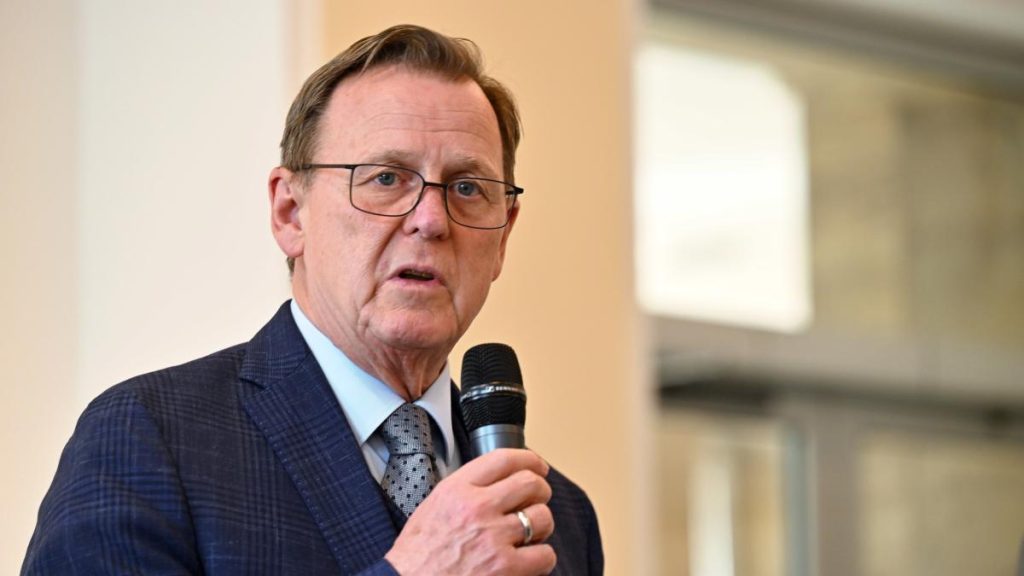Thuringia’s Minister President Bodo Ramelow of the Left Party has suggested that the German Grundgesetz (Basic Law) be transformed into a constitution through a popular vote. Ramelow believes that this would help overcome the “emotional alienation” felt by East Germans towards the Grundgesetz, which was drafted in West Germany 75 years ago. He argues that Germany, as a nation, is ready to live under a constitution rather than a basic law, and that this change would acknowledge the 34 years of transformation and German unity since reunification. Ramelow praises the vision of the Grundgesetz’s creators and points to Article 146, which allows for its transformation into a constitution through a popular vote.
Ramelow highlights the need for a popular vote due to the presence of conspiracy theorists, Reichsbürger (citizens who reject the legitimacy of the Federal Republic of Germany), and other fringe groups who derive their beliefs from Article 146. He sees this as an opportunity to show that these voices represent only a radical minority. Ramelow stresses that he does not seek significant changes in the content of the constitution, stating, “I do not want a new, completely different constitution.” He admits that his views on the rapid accession of the eastern German states under Article 23 in 1990 have evolved, acknowledging the necessity of that decision at the time. However, he believes that the question of a constitution under Article 146 remains unanswered to this day.
As Germany commemorates the 75th anniversary of the Grundgesetz, celebrations are planned, including a state ceremony in Berlin on May 23, organized by Federal President Frank-Walter Steinmeier. Additionally, a Democracy Festival is scheduled to take place in the government district from May 24 to 26. Ramelow believes that now is an opportune moment to discuss and implement the transformation of the Grundgesetz into a constitution, as a way to move beyond the emotional and ideological divisions that still exist between East and West Germans. He sees this as a chance to affirm Germany’s status as a united nation and to pay tribute to the forethinking creators of the Grundgesetz.
The suggestion of a popular vote to establish a German constitution is a bold and potentially controversial proposal, as it challenges the status quo established by the Grundgesetz 75 years ago. Ramelow’s call for a national conversation on this issue reflects his belief that Germany is ready for this change and that it would be a fitting way to honor the country’s history and the process of reunification. By addressing the concerns of those who feel disconnected from the current legal framework, Ramelow hopes to bridge the gap between different parts of German society and create a stronger sense of unity and purpose moving forward. This proposal will likely spark debate and discussion across the political spectrum, with various stakeholders considering the implications and potential benefits of such a transformation.
Despite the challenges and potential resistance to his proposal, Ramelow remains steadfast in his belief that the time is ripe for Germany to transition from the Grundgesetz to a proper constitution. He sees this as an opportunity to reaffirm the country’s commitment to democracy, unity, and the rule of law, and to address the lingering divisions and suspicions that continue to exist within German society. By engaging in a national dialogue and popular vote on this issue, Ramelow hopes to strengthen Germany’s democratic foundations and create a more inclusive and cohesive nation that can move forward with confidence and pride in its shared values and history.


